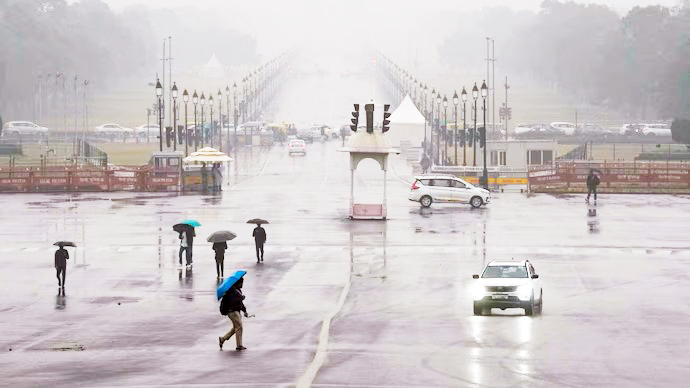Our Terms & Conditions | Our Privacy Policy
Administrative delays stall cloud seeding trials in Delhi
The cloud seeding process will be overseen by IIT Kanpur. Delhi government’s role is limited to funding.
NEW DELHI: The cloud seeding trials in Delhi—originally scheduled for late May or the first week of June—have been delayed. A source within the Delhi Environment Department informed The Sunday Guardian that the department is currently awaiting no-objection certificates (NOCs) from various other agencies before it can authorise IIT Kanpur to proceed with the trials. Notably, the entire cloud seeding process—from planning and execution to providing aircraft, chemicals, and managing logistics—will be overseen by IIT Kanpur.
The Delhi government’s role is limited to funding the project. While the technical groundwork has already been completed, the next step hinges on receiving the necessary clearances. A total of 13 NOCs are required from several key agencies, including the Directorate General of Civil Aviation (DGCA), Ministry of Defence, Ministry of Home Affairs, Ministry of Environment, Forest and Climate Change, and the Airports Authority of India, among others. Only after these departments grant their approvals can both the government and IIT Kanpur move forward with the implementation of the trials. It is important to note that air pollution in Delhi reached alarming levels during the last winter season, placing the city at the top of national and global pollution charts.
According to data from the Central Pollution Control Board, Delhi’s Air Quality Index (AQI) had crossed the 450 mark—falling into the ‘severe-plus’ category. In response to the worsening situation, the newly formed BJP-led Delhi government approved the cloud seeding project in a cabinet meeting. The total project cost is estimated at Rs 3.21 crore, which includes Rs 2.75 crore allocated for conducting five separate cloud seeding trials (Rs 55 lakh per trial), along with a one-time setup cost of Rs 66 lakh for equipment calibration, logistics, and preliminary preparations.
As per the plan, Delhi will conduct five cloud seeding operations on different days, with each session lasting approximately one to one-anda-half hours. The scheduling of these trials will depend heavily on the availability of suitable cloud cover. Officials involved in the project had earlier stated that if favourable weather conditions prevail, all five trials might be executed within a week or spaced out with one or two days in between.
IIT Kanpur, which is spearheading the project, will determine the specific locations for these experiments based on a range of scientific, logistical, and safety considerations.
Due to airspace restrictions and safety concerns, areas such as Lutyens’ Delhi and the vicinity of Indira Gandhi International Airport have been ruled out as trial sites. Consequently, the cloud seeding operations will be conducted in the outer areas of Delhi, where meteorological conditions will also be a determining factor.
According to officials, during each trial, an aircraft will be airborne for 60 to 90 minutes, with the final schedule expected to be announced soon. The first trial is now likely to be held by the end of June, depending on how quickly the required approvals are obtained. Cloud seeding, often referred to as artificial rain, is a weather modification technique in which certain chemical substances are released into clouds to trigger precipitation, provided that other atmospheric conditions are conducive.
Images are for reference only.Images and contents gathered automatic from google or 3rd party sources.All rights on the images and contents are with their legal original owners.



Comments are closed.